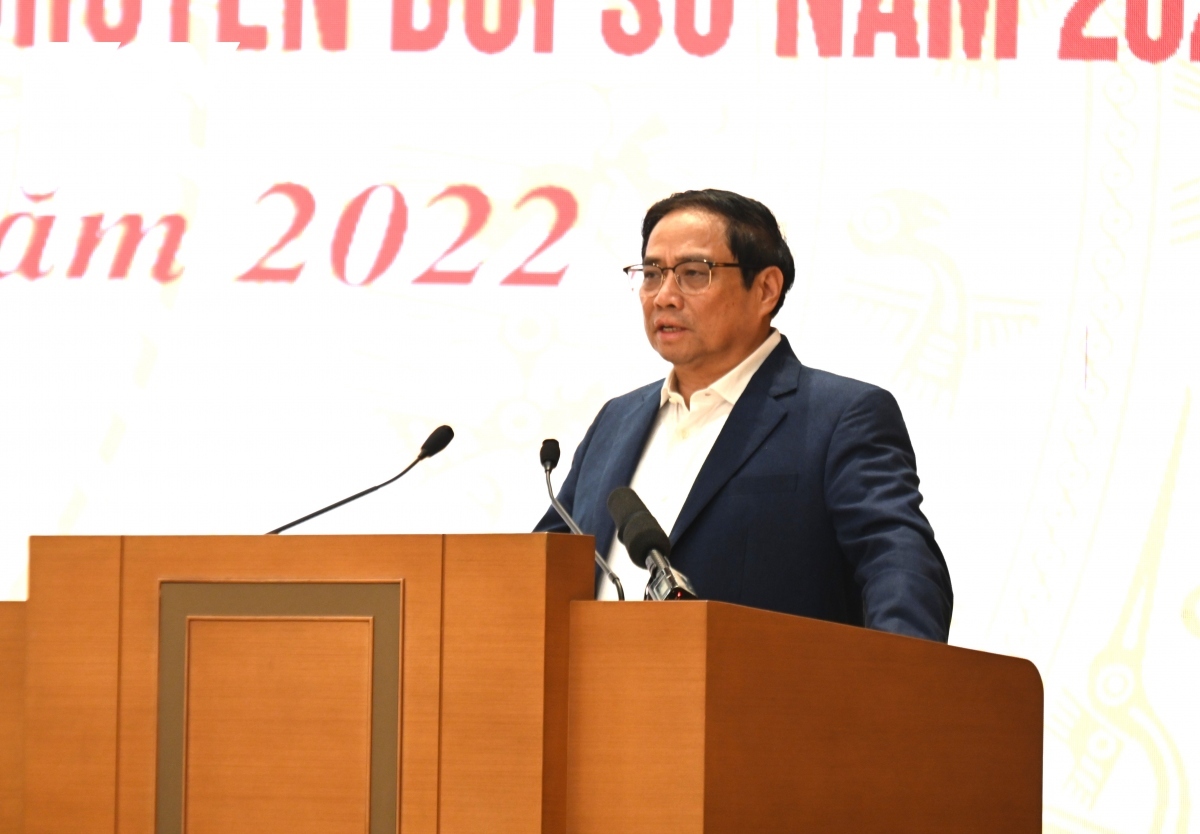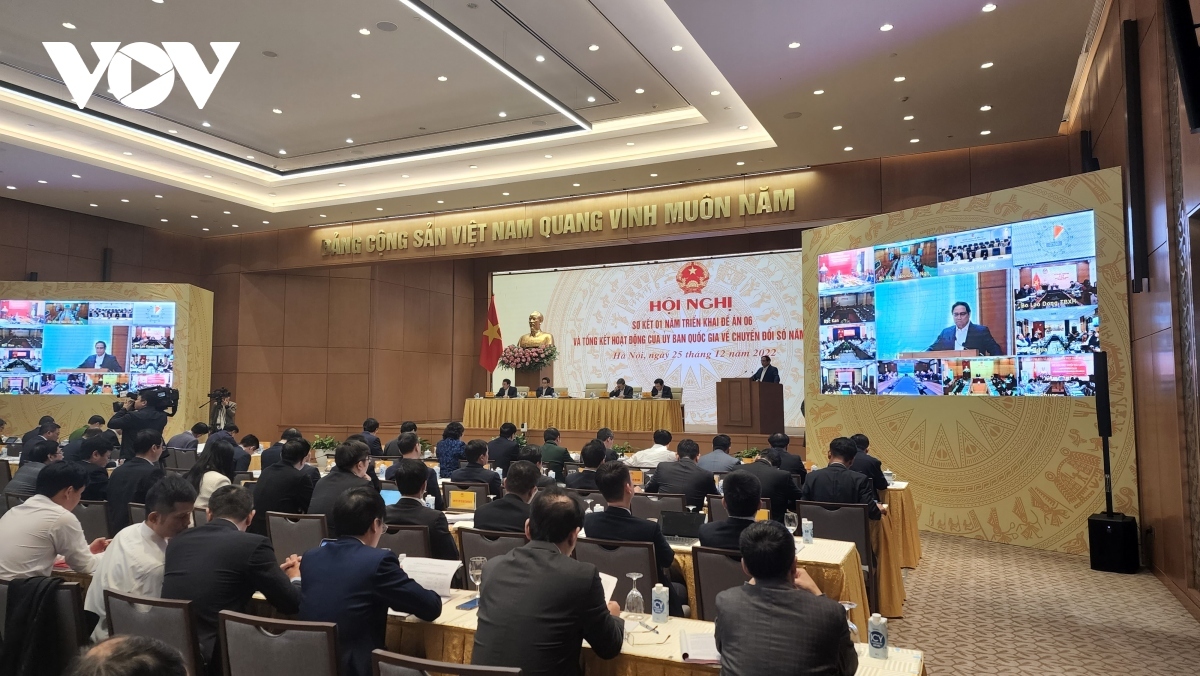PM highlights digital government as driving force behind digital economy development
VOV.VN - A digital government is the major driving force, leading the building of a digital economy, digital citizenship and digital society, contributing to the successful implementation of the Resolution adopted at the 13th National Party Congress.

Prime Minister Pham Minh Chinh made the statement at a meeting on December 25 to review the one-year implementation of a project on developing the application of population database, e-identification, and e-authentication for the national digital transformation in the 2022-2025 period with a vision to 2030 (Project 06).
In his address, the Vietnamese Government chief praised the efforts and results achieved by ministries, sectors and localities, as well as the drastic direction of the National Committee on Digital Transformation with the core role of the People's Public Security force, consensus, support and active participation of people and local businesses.
Digital transformation is a new, difficult and complex issue that requires gaining international achievements and experience and applying it creatively, in accordance with the specific conditions and circumstances of Vietnam, Chinh said, while stressing that there should be a way of breakthrough thinking and a strategic vision to promote the spirit of self-reliance, and solidarity for common interests.
Digital transformation must take the people and businesses as the center, the subject, the goal, the motivation, in order to provide better quality services, better serve the people and businesses towards and towards the formation of a digital population and a digital society.
PM Chinh emphasized that a shared national database should be finalized in 2023, while pointing out a number of shortcomings in the work, including an incomplete digital infrastructure and a big gap between urban and rural areas.
The cabinet leader asked ministries, sectors and localities to further improve their awareness on the significance of digital transformation in the national socio-economic development strategy in the 2021-2030 period, while continuing to fine-tune institutions and mechanisms to create a favourable legal corridor for national digital transformation.
He also urged acceleration of the updating, connectivity and sharing of digital platforms and databases, including connection of national and specialised databases with the Government's information and governance centre, along with completing the public service portal.
More efforts should be focused on completing the online provision of 53 essential public services, and greater attention paid to personnel training for the work, he said.
According to the National Committee on Digital Transformation, after one year of carrying out Project 06, the public awareness and behavior of digital transformation have been improved in all localities at all levels, while State management activities have generally switched to digital modes with many helpful products and services provided to the people and businesses.
In 2022, 16 important documents have been issued regarding digital transformation, including a national strategy on digital economic development until 2025 with a vision to 2030.
The speed of broadband Internet and mobile Internet has seen remarkable improvement, ranking 45th and 52nd in the world, and is higher than the world's average.
Currently, 48 out of 63 localities have operated their provincial smart monitoring and managing centres.
A population database has been set up, connected to 47 ministries, localities and State businesses, while more than 76 million chip-based ID cards have been issued, and nearly 2.6 million of e-ID accounts have been activated.
Notably, the National Online Service Portal has provided nearly 4,400 public services at levels 3 and 4.
In the year, more than 12,000 cyber attacks were detected and handled, while more than 56% of Party and State agencies have applied standards on information security.
99% of all enterprises have so far paid their taxes online, while all operating businesses have used e-invoice.
In 2022, e-commerce contributed 7.5% to total retail revenue, while a strong rise was seen in the number of online shoppers and subscribers of Mobile Money, the committee stated.
With positive results obtained in 2022, the PM believed that the Digital Transformation Program with a particular focus on Project 06 will successfully fulfill the set goals and tasks.

